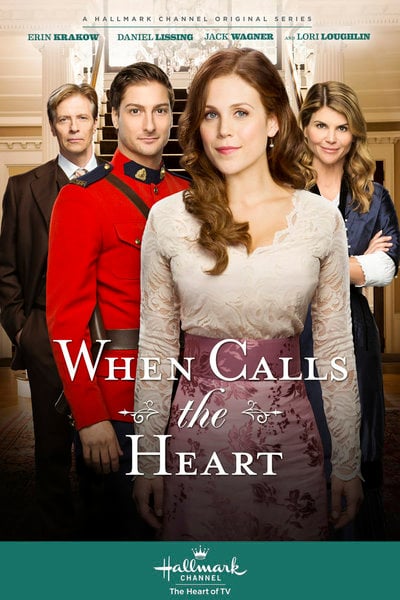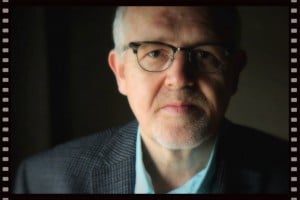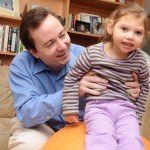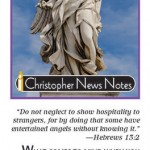 Brian Bird has been a writer and producer in Hollywood for 30 years, working on shows like “Touched by an Angel” and the sitcom “Step by Step.” His latest project is season two of the Hallmark Channel series “When Calls the Heart,” which is based on the popular novel by Janette Oke.
Brian Bird has been a writer and producer in Hollywood for 30 years, working on shows like “Touched by an Angel” and the sitcom “Step by Step.” His latest project is season two of the Hallmark Channel series “When Calls the Heart,” which is based on the popular novel by Janette Oke.
The show takes place in the year 1910 and tells the story of Elizabeth Thatcher, a young teacher accustomed to high society life who gets assigned to a frontier town called Coal Valley. She makes new friends there, but also faces surprising challenges.
Brian joined me recently on “Christopher Closeup” to discuss the show, his upcoming movie “Captive,” and his insights on the role that Christians can play in Hollywood to change our culture for the better.
Here is an edited version of our interview. To listen to the whole thing, click on the podcast links at the bottom of this post:
Tony Rossi: When I was a kid and my parents and I would watch TV as a family, they would choose shows that they weren’t embarrassed to watch with me. Now that I’m older it’s flipped. If I watch TV with my parents, I try to find shows that I’m not embarrassed to watch with them. One of those shows is “When Calls the Heart.” Is one of the appeals of creating this show the fact that families can watch it together, regardless of age?
 (Photo by Mary Denman, Denman Photography)
(Photo by Mary Denman, Denman Photography)
Brian Bird: Yes. Most of my career, Tony, I’ve been involved in shows [or films] that whole families can watch together. It’s the nature of what my personal mission in the world is: to create faith- and life-affirming kinds of programming. In the last decade to 15 years – really since the end of “Touched by an Angel” – the paradigm has shifted in terms of what’s on television these days. It’s not safe viewing for families or for sons and aging parents. It’s zombies and vampires and dead body shows and crystal meth dealers. Some of it is really well done programming. [But] marketplace forces are driving away, sort of, family programming.
We find with “When Calls the Heart” that it’s a throwback to shows like “Little House on the Prairie” and “The Waltons.” Compared to what’s on right now, it’s radical programming…To me the goal is to tell universal stories. I believe all human beings have these violin strings running through our souls. These strings, when you pluck them, they reverberate with certain themes like forgiveness and redemption and sacrifice and courage and banding together to help one another.
TR: You mentioned “Touched by an Angel” before. “When Calls the Heart” is not as focused on God as that show, but there is a faith dimension.
Brian Bird: North America has historically and culturally been a place of faith – many different kinds of faith, but a place of faith. We’re not proselytizing or trying to evangelize people with the show. We just want to ask great questions…I am a Christian myself. My partner [at Believe Pictures], Michael Landon Jr., is a Christian. This is how we believe and work and walk in the world. However, I’m not here to bang people over the head with those ideas. What I want to do is ask great questions, stir up cravings, and ultimately get people talking to one another about the show. If you have a flesh-and-blood conversation with your neighbor about our show because of a question we asked, that’s a better way to have people discover faith as opposed to just handing them a tract and being done with it. That’s what, in my mind, evangelistic films and television are – visual tracts. I would much prefer that exchange of discovery happen between neighbors.
TR: Your approach is biblical because Jesus taught in parables, and sometimes the parables weren’t easy to understand. But He was trying to get people thinking. So you’re saying that is basically the job of Christian storytellers in our culture too.
Brian Bird: Absolutely right. We’re telling parables. It’s earthly situations which sometimes communicate heavenly truths. That’s what C.S. Lewis said all art is. All art is an attempt by us humans to copy heaven in some way.
TR: Because of social media like Twitter, I imagine “When Calls the Heart” is probably the first experience of its kind in your career where you really get to hear from the fans right away directly. How has that been for you, especially with the Hearties, the online community that loves the show?
Brian Bird: It absolutely was an amazing first season for us in terms of the fan experience. We’re on the Hallmark Channel – April 25th is the season two premiere, 8:00pm eastern/7:00pm Central…..We were so crazy busy trying to get the first season done last year, we didn’t have any time to think about [marketing]. About a third of the way through the first 12 episodes, this group of very vocal fans began to pipe up on Facebook and Twitter and Instagram. They were basically [asking], “Where has this show been? We’re starving for this kind of entertainment.” In thanking us, they named themselves the Hearties. Now Hallmark Channel is putting #Hearties on the screen at various points during the broadcast to continue stimulating that. This was not some sort of calculated marketing plan that we had. These Hearties are the most excited, hungry fans that I’ve ever experienced in my 30 years of doing this.
When we saw them beginning to make noise on social media, we wanted to encourage them and cooperate with them. They’ve been the biggest blessing of this whole experience for me. If any of your listeners want to find the Heartie group page on Facebook, it’s just called “Fans of Hallmark’s When Calls the Heart.” They’re 23,000 strong now. It’s a whole community and they’re creating friendships. They’re having what they call Heartie Parties across the country. I believe they were responsible for helping us get season two. They started the most sophisticated letter-writing campaign I’ve ever seen, called Operation Heartstring Across America. They collected handmade hearts from all over with messages on them. The people would sign their names and the town that they’re from and they would put a message there like, “Thank you for this show that I can watch with my whole family. Please give us another season.” Then they collected them and strung them together with ribbon and they sent them into the Hallmark Channel – 2,500 of them.
TR: That must have been a treat for Hallmark!
Brian Bird: Hallmark got bombarded with these hearts, so they hung them up in their offices here in Studio City, California, and took photos of them. So there’s this real synergistic thing happening now with the Hearties. We even had several groups of them get themselves up to Vancouver where we shoot the show. We put them into wardrobe and let them get in scenes of season two. Now those folks are going back and they’re spreading – a term we coined – eFangelism. They are doing things like loading the show on their iPhones, then when they’re standing in line at the grocery store, they’re playing it and causing other shoppers to ask them what it is. Then they pitch about why they should be watching the show too.
TR: In addition to “When Calls the Heart,” you’ve also got a feature film in the works called “Captive,” which is based on the true story of Ashley Smith. When I looked it up, I didn’t remember her name but I remembered her story. So tell us about Ashley.
Brian Bird: This is a film we’ve been trying to get made since the event happened in 2005. Ashley Smith was a young widow. Her husband had been murdered three years earlier and it sent her into a big tailspin of drug abuse. She lost custody of her daughter and had to go into recovery and rehab. She was really struggling, trying to rebuild her life and get clean, but then she got taken hostage by a man named Brian Nichols who shot up the courthouse in Atlanta. He was there for a hearing on his rape trial. He shot a judge, a court reporter and a deputy, then took three guns and escaped from the courthouse and was on the run for 24 hours. That night, he took Ashley Smith hostage in her apartment. She had the presence of mind to try to engage him on a personal level even though she was still having trouble with crystal meth, the drug that she was addicted to. She read to him from Rick Warren’s [book] “The Purpose Driven Life” ultimately and it was the catalyst that caused him to give up…[Ashley] is a huge spokesperson now for the Celebrate Recovery movement because she has been clean and sober since that night. It took a killer to save her life because she didn’t believe she was ever going to be able to kick the crystal meth. She’s been clean and sober since that day.
And we’ve got a great cast. If you saw “Selma,” David Oyelowo who plays Martin Luther King and was a hair’s breadth from an Academy Award nomination for that – he was robbed, in my opinion – he plays our killer, Brian Nichols. And [David] is a strong, committed Christian himself, was a youth pastor at one point in his life, just a fantastic man. Then Kate Mara plays Ashley Smith. We’ll see her next in August. She’s the new Invisible Woman in the “Fantastic Four” reboot. [My] movie will come out nationally September 18th, and it’s called “Captive.”
TR: People always talk about how culturally influential movies are, but personally, I’ve always thought TV series are more powerful because people watch TV week after week. You build this relationship with the characters. What’s your take on the cultural influence of television versus movies?
Brian Bird: I’m 100% with you. Television’s like that relative that comes to live with you. Sometimes it’s the crazy uncle that has bad language and foul behaviors. Sometimes he’s the nicest guy in the world! But it is a family member, that television or that iPad or that iPhone, they’re family members now. And I do believe that media conversation is the loudest conversation going on in the world right now. Sadly, it’s louder than the Church’s conversation, and it’s capturing the hearts and minds of everybody. TV and film, in a sad way, are the new church experience people are having. You go to a film, and you’re sitting with a 150 people watching a movie, and you’re laughing and crying together. That’s [like] a church experience. The hearts and minds of the viewers are in the hands of the people who do the most preaching.
TR: As Christians, we viewers – and I’m including myself in this – we often talk about the message of a particular show or film. But I also feel that we can overemphasize that to the point that the message overshadows quality storytelling and character development. You worked on the weekly series “Step by Step” – and I enjoy sitcoms going back to “I Love Lucy.” These shows didn’t always have a message, per se; they were just entertaining and funny. So how do you deal with that tension between creating a message and just good entertainment?
Brian Bird: Well, I would slightly disagree with the premise that there are some things that are just entertainment. Some may be more poorly executed than others, or their goal is to get as many laughs as they can. But I know for a fact that all the writers I’ve ever worked with, there’s always some meta-message that we’re trying to communicate in a story. I watch a lot of films and television, just because I want to know what other people are good at and what they’re communicating. And there absolutely are meta-messages happening in every film. To me, every piece of entertainment is gonna communicate something. It just depends on who’s the person doing the communicating and what worldview they have.
TR: Sometimes Christians think Hollywood hates them and is out to destroy them. So tell us, does Hollywood hate people of faith?
Brian Bird: Absolutely not. There’s no conspiracy. There’s a conspiracy to make money, and the last time I checked, most Christian bookstores are in business to make money, too. They couldn’t exist if they were operating at a loss all the time. So it’s a conspiracy to make money, and Hollywood is amoral in that way. They will do whatever it takes to make money. It just so happens that the people whose rear ends are in the chairs making the decisions, they’re bringing their own worldview to the table. So if they’re not coming from a place having some sort of Christian or religious worldview, that’s just what they believe. But they’re not saying, “How can I destroy the family?”
The fact that there’s so much edgy material on television right now is, I believe, partially just the marketplace at work. When you have the media pie that used to be four slices, with the four major networks, now a hundred slices, all the slices are much smaller. So how do you still get marketshare from your next door neighbor? You gotta get louder and more sensational. So how are they doing it? They’re pushing the boundaries because they’re trying to get attention. Unfortunately, that doesn’t always work correctly, right? The capitalism model doesn’t always work in everybody’s best interest.
TR: Have you seen more of an influx of Christians trying to get into the industry because of programs like Act One and such?
Brian Bird: Absolutely I have, and I think it’s a function of the digital age, of the YouTube generation as well, where everybody and his brother are moviemakers now – or they think they are. I think there’s a lot of great new talent that has been building. There is a new kind of gold rush happening right now with Christians wanting to be effective and have their voices heard. I love that, I support that, I want to help nurture people because I’ve been doing this for 30 years. I’ve learned all the hard lessons and made all the mistakes, and I want to give people the benefit of having been through the shortcuts and the mistakes.
Not everybody was born a movie maker or a screenwriter or a director. A lot of it is instinctive, but then you’ve got to put your 10,000 hours in, as Malcolm Gladwell says in “Outliers.” Expertise takes 10,000 hours to acquire, no matter how gifted you are.
TR: Before we wrap, tell me – what are your hopes for people who watch “When Calls the Heart,” season 2, Saturday nights at 8:00 on the Hallmark Channel?
Brian Bird: I hope they get what it means to be a family again…I want this show to be an experience like people had with “Little House on the Prairie” and with “The Waltons” and “Bonanza,” and to experience it like [me] watching these shows with my parents. One of my best memories with my dad, who’s now gone home to be with God – he and I loved “Magnum PI” when I was growing up. It was not specifically a family show but there was some thrill to it and action and humor. But what a great memory I have of that!
Well, you know what? We’re all off in our little rooms watching television by ourselves now – and that’s not a good thing. It’s at least something we need to balance with some shared family experiences, and I hope that our show is [something] families can take advantage of.
(To listen to my full interview with Brian Bird, click on the podcast links):
















